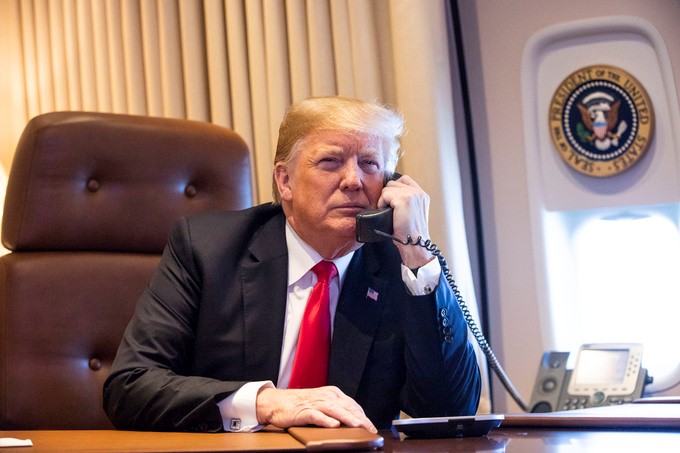Photo above courtesy of Creative Commons: Trump declared a national emergency concerning border security on February 15th, 2019.
President Donald Trump has been able to compromise with the Democrats on the funding for the wall along the southern border, but this leaves the question: now what?
Just this Friday, Trump has declared a national emergency in order to gain the remaining funding from the military in addition to the $1 billion he is already receiving from Congress. “I didn’t need to [declare a national emergency], but I’d rather do it much faster, … I just want to get it done faster,” Trump remarked from the Rose Garden at the White House.
This announcement raises the concern that future presidents can begin to use national emergencies as a way of abusing their power over governmental bodies, or, as Trump is doing, overstepping the legislative process entirely.
Trump is expected to be sued over the legality of declaring a national emergency, but is betting on the Supreme Court to rule in his favor.
The National Emergencies Act of 1976 allows a president to specify the statutory body they are invoking to address the emergency.
There are 136 laws that the president may enact once declaring a national emergency, differing on the level of restrictions applied to each of them. For example, one statute states that the “president may provide for the establishment and training of a ‘nucleus executive reserve’ for employment in executive positions in government.”
This ambiguity and leniency allows for sitting presidents to easily abuse this power, as it essentially functions as a work-around to our democracy’s system of checks and balances.
Once declared, a national emergency must be renewed annually or it will expire. Since its signing in 1976, The National Emergencies Act has given rise to some 60 different emergencies, 31 of which have been consistently renewed.
A majority (26) of these emergencies cover sanctions, one covers export limits, one covers weapons proliferations, and three are for other reasons, according to Washington Post writer Kevin Schaul.
The act itself does not define what an emergency is, which allows the president to have the discretion to determine what an emergency is themselves. This decision goes seemingly unchecked by any other representative body, almost bypassing the democratic system entirely.
Our current national emergency would testify to the truth of this loophole, as historical precedent would suggest that Trump’s funding for a border wall does not qualify as a national emergency at all.
His declaration ignores all precedents for previous emergencies, in that Trump is attempting to fulfill a campaign promise, instead of responding to a specific event. It also directly opposes the definition of an emergency in of itself.
An emergency is an unforeseen circumstance or circumstances that require immediate action; Trump declaring a national emergency when he has admitted he did not need to do so and when he campaigned for this issue does not make it an unforeseen circumstance.
Furthermore, this clear disregard of assessing an actual emergency takes funds away from where they are needed, the majority of which will come from the Department of Defense’s military construction account, according to CNBC.
Instead, this money will go towards funding a wall that Trump has already gotten money for from a bipartisan bill.
Loose definitions of emergencies set a dangerous precedent.
Trump has now opened a wide door for future presidents to declare a national emergency when they are being opposed by congressional powers or to help push their party agenda when opposed.
This is a clear abuse of power and should not be tolerated.
If a president is going to enact an emergency, thereby gaining access to provisions otherwise unavailable to them, they should be held to making sure that emergency at least qualifies as an emergency, in that it is something that is an unforeseen circumstance and not something the president had campaigned for and is using to push their agenda.
Unless this issue is addressed, we risk going down a slippery slope of power grabs from future presidents.
















































































cassie • Feb 20, 2019 at 10:33 am
This is one of the most well-reasoned, well-written, and informative pieces I’ve seen come out of The Falcon. Kudos to the writer.